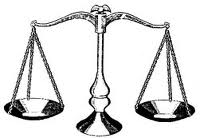Notice, first, that I say “resulting from” choice. Nobody choses to be addicted. But as people become increasingly hooked, they may increasingly choose to take the pill or the drink, or to gamble or purge, and that’s the thing we need to examine. What is the role of choice in the onset of an addiction? What is its role in recovery?
The voices that oppose the “choice” model often argue that addictive behaviour is nothing like free choice. It is like a compulsion. There is a feeling of need and desire, and perhaps not just a feeling but an actual need, that compels them to choose to use, each and every time. From the “disease” camp, this argument is further bolstered by our understanding (as described last post) that addiction really does change the functioning of the dopamine system. Since our organ of goal-pursuit (the NAC, or ventral striatum) is thus compromised, how could we possibly make free choices. Finally, opponents of the “choice” model argue that framing addiction as choice just invites the humiliations and accusations, both from within ourselves and from others, that become so unbearable. “If it’s a choice, then you damn well need to choose differently, and that’s your responsibility!” That usually makes things worse, not better.

The problem, I think, comes with the phrase “free choice”. Who said choice is free? I’ve covered this topic in two previous posts. In the first of these, I argued that choice comes from the brain – obviously – and it specifically springs from a contest between the striatum’s goal seeking and the role of the anterior cingulate cortex (ACC) in monitoring probable outcomes. In the second, I described how neuroscientific data places the moment of choice in a stream of brain activity, occurring seconds before we’re even aware of making a choice. But I also claimed that we can insert “reflection” into that stream and nudge it one way or the other.
With addiction, the ACC is increasingly weakened by ego fatigue, and the v. striatum responds ever more strongly to gouts of dopamine triggered by addictive cues (including thoughts and memories). So choice becomes increasingly irrational, increasingly spontaneous, and increasingly uncontrollable. Then should we still call it “choice” at all?
One of the most persuasive advocates of the choice model is Gene Heyman. For Heyman, addiction is a result of choosing what is most rewarding in the moment at the expense of long-term gains: choosing ‘‘locally’’ rather than ‘‘globally.’’ He cites studies of delay discounting that investigate these effects. Remember the marshmallow test? Same idea. Rewarding events are much more attractive if they are expected “now” rather than “later”. But this poses a problem: repeatedly choosing the immediate reward makes both immediate and long-term rewards less desirable. In terms of the immediate benefits, heroin becomes expensive, boring, and smeared with self-rebuke. It’s never as good as it was at the beginning. But the value of long-term rewards goes down as well. Once your marriage is shot, you’ve lost your job, and/or you’re deeply in debt, the future doesn’t hold much attraction at all. It becomes less and less rewarding, in fact it becomes painful to contemplate. So the immediate reward, a shot of heroin, remains the best option.
On any single occasion, says Heyman, the local choice continues to be valued above the global choice. In other words, an immediate reward—‘‘one more time,’’ as addicts often tell themselves—is always more attractive than waiting for the long-term picture to get brighter. In this way, addictive choices are like normal choices. You choose what you want based on its expected value. But, unfortunately, the expected value of things gets shifted by the self-perpetuating nature of addictive behaviour.
What’s wrong with the “choice” model? It sounds pretty rational. Just a problem of behavioural economics, as they call it. We keep choosing what feels best. And that also means that we can choose differently, providing a gateway to recovery. Once the future backs right up to the present moment, then the immediate choice, the addictive choice, loses its attraction, and we can choose to stop.
What’s wrong is that the “choice” model ignores the brain. Big mistake! The brain that houses the famous dopamine pump, and its eagerly awaiting customer, the v. striatum, is the same brain as the one we use for making choices. From a brain’s-eye view, the reason people choose the immediate reward is that dopamine highlights immediate possibilities. That’s its function, and has been throughout evolutionary time. Research shows that dopamine rises proportionally as the goal gets closer and closer at hand, driving motivation with it. Now, if that’s the case for marshmallows and other normal rewards, imagine how powerful the dopamine surge is in response to addictive substances or acts! (See recent posts and comments.) That swelling wave of dopamine, announcing the availability of a supremely attractive reward, recasts the balance between present and future appeal — more quickly and more thoroughly than anything else could. To choose future gain, over immediate reward or relief, becomes incredibly difficult when every synapse in the striatum and frontal cortex is resonating to the “neural now”. Especially once ego fatigue sets in.
So, yes, the addictive act is a choice. Each and every time. That means that there is always the possibility of saying No. Yet, saying No is incredibly difficult, and that’s a problem the “choice” camp can’t solve…
…without the help of neuroscience.
Leave a Reply